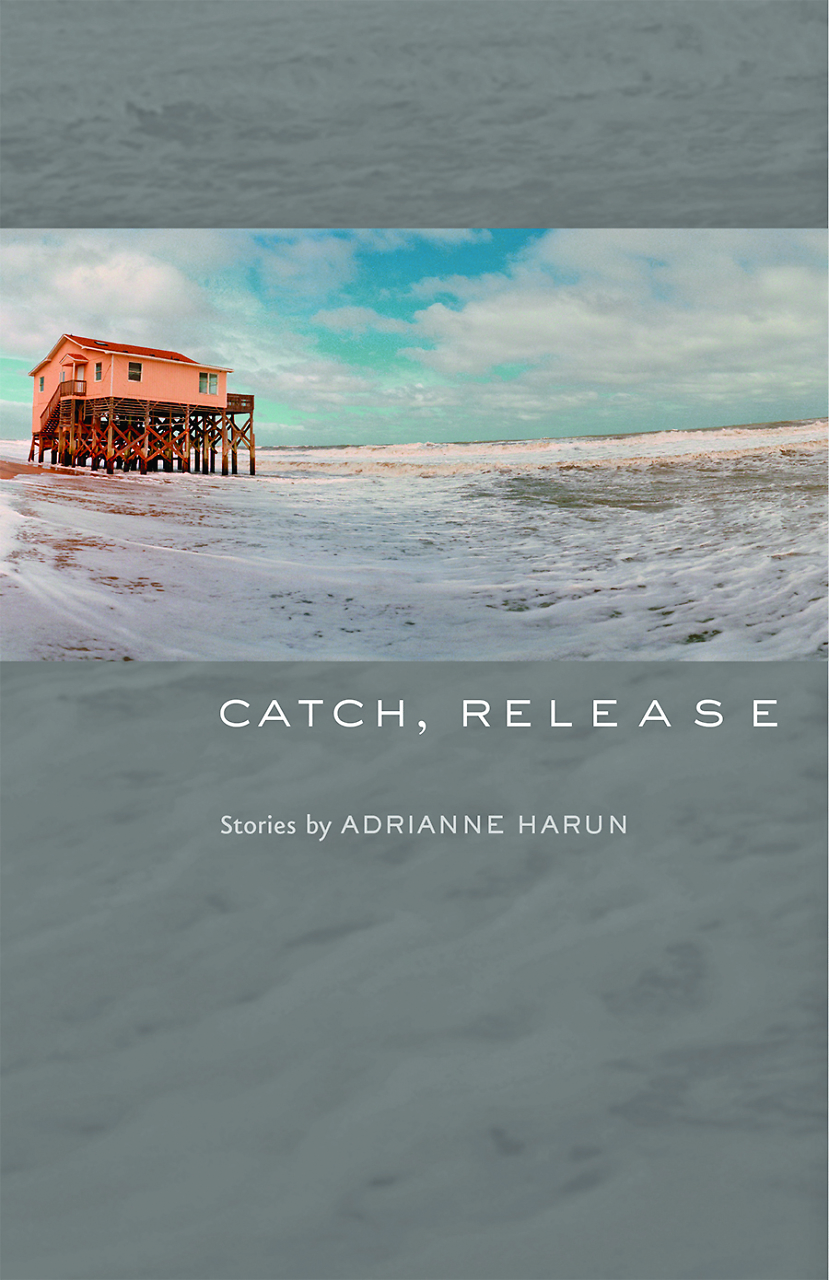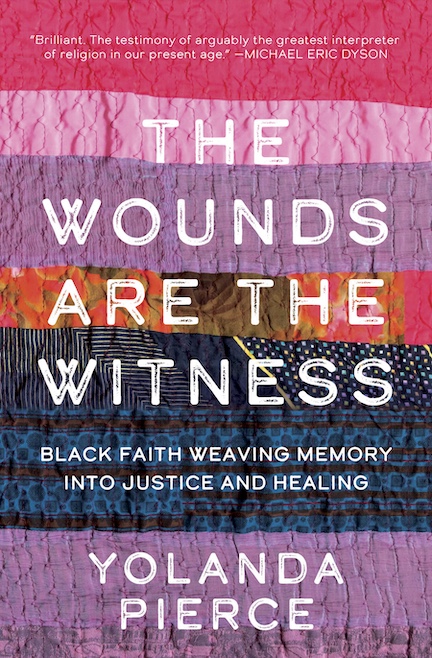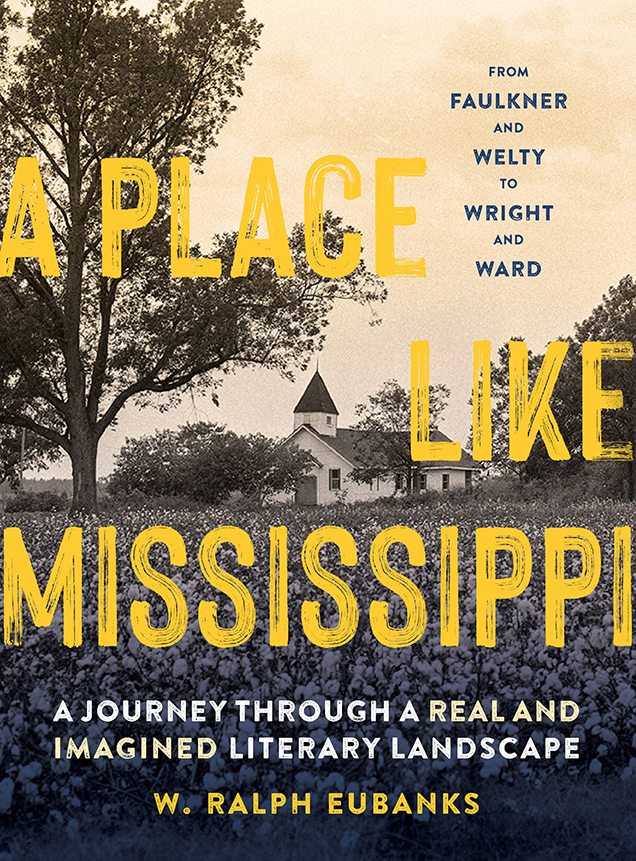Danger, Demolition, and Desire
Jennie Bentley talks about her third Do-It-Yourself mystery, Plaster and Poison, as well as the lure of “a hot guy with power tools”
As both a licensed real estate agent and someone who has ripped out drywall herself, Jennie Bentley—a pseudonym for Nashville mystery novelist Bente Gallagher—writes about what she knows, decorating it in a palate of romantic colors with just enough dark accents to provide tension. Following her first two Do-It-Yourself mysteries, Fatal Fixer-Upper and Spackled and Spooked, Bentley returns to small-town Maine, where former fashion designer Avery Baker has hooked up with hunky Derek, an ex-doctor turned renovation expert. Naturally, a body soon turns up, this time in her best friend’s carriage house. But by book’s end, the mystery is solved and, like a Victorian novel, wedding bells are ringing all around.
Bentley’s next cozy mystery series, starring Southern Belle turned real estate agent Savannah Martin, launches in June with A Cutthroat Business. It will be published under her real name and will be set in Nashville. She talks with Chapter 16 about both books.
Chapter 16: You are fascinated by real estate, obviously, since both your series are based on the business of houses. What’s the lure of buying, selling, and restoring houses?
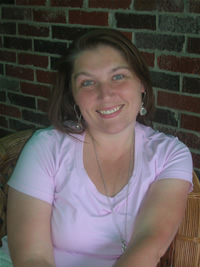 Bentley: It’s a case of writing what you know. My husband and I are living in our ninth house in nine years. We started out wanting to own a home, and then we realized that the house we’d bought—cheaply, because we were young and poor—was worth a lot more than we’d paid for it. So we sold it and bought another, and then another, and then another. And got ourselves real estate licenses along the way, to help other people buy and sell houses. For a few years, there was a lot of money to be made in renovating. The trick is to buy the right house at the right price, and then not to put too much money into it. That said, and speaking for me personally, I enjoy taking an old, neglected, downtrodden house and bringing it back to life. A well-built old house is almost like a work of art, and it’s sad to see it go to pot from neglect and abuse. Makes me want to swoop in and rescue it!
Bentley: It’s a case of writing what you know. My husband and I are living in our ninth house in nine years. We started out wanting to own a home, and then we realized that the house we’d bought—cheaply, because we were young and poor—was worth a lot more than we’d paid for it. So we sold it and bought another, and then another, and then another. And got ourselves real estate licenses along the way, to help other people buy and sell houses. For a few years, there was a lot of money to be made in renovating. The trick is to buy the right house at the right price, and then not to put too much money into it. That said, and speaking for me personally, I enjoy taking an old, neglected, downtrodden house and bringing it back to life. A well-built old house is almost like a work of art, and it’s sad to see it go to pot from neglect and abuse. Makes me want to swoop in and rescue it!
Chapter 16: How does Nashville work as a setting for a mystery series? Does Nashville have an identifiable essence?
Bentley: I think Nashville works very well as a setting for a mystery series. It’s a big town, but not too big, with a wide variety of locales—from downtown and industrial areas to historic neighborhoods to suburbia and satellite communities, as well as lakes, rivers, and forests. Something for everyone! And where most outsiders think of Nashville solely as Music City, those of us who live here know that country music makes up just a small part of what the city is about. There’s a lot of history, art, theatre, and industry here that makes for a wide variety of potential topics for a writer to plumb.
Chapter 16: Your writing mixes together home improvement, romance, and mystery. Why do you think this has proved to be such a popular cocktail for readers?
Bentley: Everyone loves a good mystery, right? More women than men read, and chick lit tends to blend over into the romance genre just a little bit, which certainly doesn’t hurt its popularity, when romance is the highest selling form of genre fiction out there. And we all know how popular the home renovation shows on HGTV are! I try to incorporate a little of everything: a little history and a little mystery; a funny, friendly, sassy voice; and a hot guy with power tools. What more could anyone want?
Chapter 16: What’s your process like? Where and when and how much of your time do you write?
Bentley: Since retiring my real estate license a little over a year ago, I’ve been a full-time writer. That’s between being a wife and mother and a realtor’s assistant to my husband. I write from eight in the morning until two thirty in the afternoon, when it’s time to go pick up the kids from school. If I’m in the middle of a manuscript, I usually put in a couple of hours after they’re in bed at night, too. And if I’m nearing the end of a book, I write pretty much from sunup to sundown to get finished. I rarely write less than a thousand words in a day, and sometimes I can clock six or seven thousand. It takes me around three months to write a first draft of a book, and another couple of months after that to polish and revise. I do take some time off between books, to read and regenerate, since I can’t read while I’m writing—other people’s writing influences mine too much—and since I’m switching between two different series.
Chapter 16: Working on two series at once, do you ever get confused?
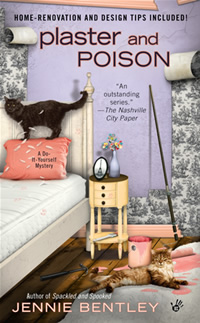 Bentley: Not really. The settings are different, the characters are different, and the atmospheres of the two series are different. But because the protagonists are both young women narrating in the first person, I have to take care that they don’t get to sound too much like one another. If I’ve spent four months in Avery’s head—she’s my Maine home renovator and a native New Yorker—I have to be careful that her speech and thought patterns don’t carry over when I start spending time in Savannah’s head. Savannah is the Nashville realtor and Southern Belle, and obviously she and Avery are going to sound very different.
Bentley: Not really. The settings are different, the characters are different, and the atmospheres of the two series are different. But because the protagonists are both young women narrating in the first person, I have to take care that they don’t get to sound too much like one another. If I’ve spent four months in Avery’s head—she’s my Maine home renovator and a native New Yorker—I have to be careful that her speech and thought patterns don’t carry over when I start spending time in Savannah’s head. Savannah is the Nashville realtor and Southern Belle, and obviously she and Avery are going to sound very different.
Chapter 16: Plaster and Poison is based on an old case. In general, how do you plot your mysteries, research the investigations? Do you outline or just set off with a goal in mind?
Bentley: I tend to be a pantser—someone who writes by the seat of her pants, without much of an outline. I start with a general idea of what I want to write about; a theme, if you will. In Plaster and Poison, it’s about family relationships. Since I’m writing a series, the books always feature the same characters, and the setting is always the same, although the houses change from book to book. Avery and her boyfriend Derek renovate a new house in each book in the series. I also have to know what the modern-day mystery will be about. Setting all that up takes me through approximately the first third of the book, or the first hundred pages. That’s when I write an outline of what I’ve already written, and try to figure out the next logical step. A good book—mystery or otherwise—should be character-driven, so it all comes down to what the characters choose to do next.
Chapter 16: Do you have the perfect reader in mind as you write? Who is that perfect reader?
Bentley: Someone who loves my book and can’t wait to recommend it to all her friends?
I can’t say that I have a perfect reader in mind, really. I write the kind of book I’d like to read, hoping that other people will like to read it too. Traditional cozy mysteries tend to be geared more toward women than men, so I write for women. That’s not to say that men can’t read my books and enjoy them, of course, but they’re mostly what you’d consider girl-books.
Jennie Bentley will read from Plaster and Poison at several different Tennessee locations this week. Please see Chapter 16‘s events page for details.

